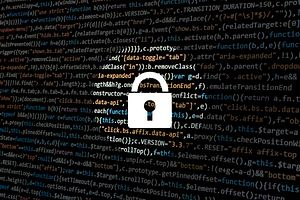In Hong Kong, the first blocking of a website on the grounds of national security and a policy change on the approval of internet domains have triggered fresh concerns over freedom of access to information – as well as the city’s status as a regional telecommunications hub.
On January 14, Hong Kong Broadband Network (HKBN) admitted to blocking HKChronicles – a website formed in response to the 2019 pro-democracy protests that shared anti-government content and personal information on police officers – after users noticed it was unreachable last week. A spokesman for HKBN told Reuters that access was disabled on January 13 in compliance with the National Security Law (NSL), marking the first time authorities have censored a website under the law since it came into effect in June.
Hours after the website was blocked, the company that approves internet domains in the city announced to holders of .hk domains that it will now reject applications for new sites that could incite “illegal acts.” Through emails from the Hong Kong Domain Name Registration Company, holders were alerted to the acceptable use policy change made by the parent company Hong Kong Internet Registration Corporation Limited, Reuters reports. It is unclear whether the policy, due to go into effect on January 28, will affect existing websites.
“It’s the very first time we have had a website blocking since (the internet) was available in Hong Kong,” said Charles Low, chairman of the Hong Kong chapter of the Internet Society, an organization advocating for an open internet. “We predicted this would happen back when the NSL was put into effect, but still feel regret that police have leveraged the law to impose a website ban.”
The moves have exacerbated existing concerns about internet freedom in Hong Kong, a territory that has traditionally enjoyed a free and open internet under the “one country, two systems” framework. An open internet has long been a crucial advantage in Hong Kong that sets it apart from mainland China, where internet access is restricted under a vast system known as the “Great Firewall.”
While experts say that these developments are not unprecedented, they’re increasingly worried about the pace and scope of future infringements, in addition to the broader implications. In July, the local government unveiled expanded police powers under the NSL that allowed authorities to force internet service providers to hand over user information, as well as censor online content and platforms. In response, many residents began cleansing their digital footprints, in addition to downloading VPNs and encrypted messaging apps.
According to Low, many IT professionals and members of various financial institutions – such as investment banks – are currently considering to relocate to other Asian cities. Some IT businesses have also received feedback from customers who say they are reluctant to do business with them due to security concerns in Hong Kong, he added.
After the NSL implementation rules were released last July, several internet and social media platforms including Facebook, Google, Microsoft, Telegram, and Zoom temporarily stopped accepting user data requests from the Hong Kong government.
“The success of Hong Kong is mostly based on freedoms we enjoy before 1997 and the rule of law and internet freedom,” Low said. “Now, it seems our government is ditching these core values. It will have serious and severe impact on (Hong Kong’s) role as an international financial center and regional network hub.”

































